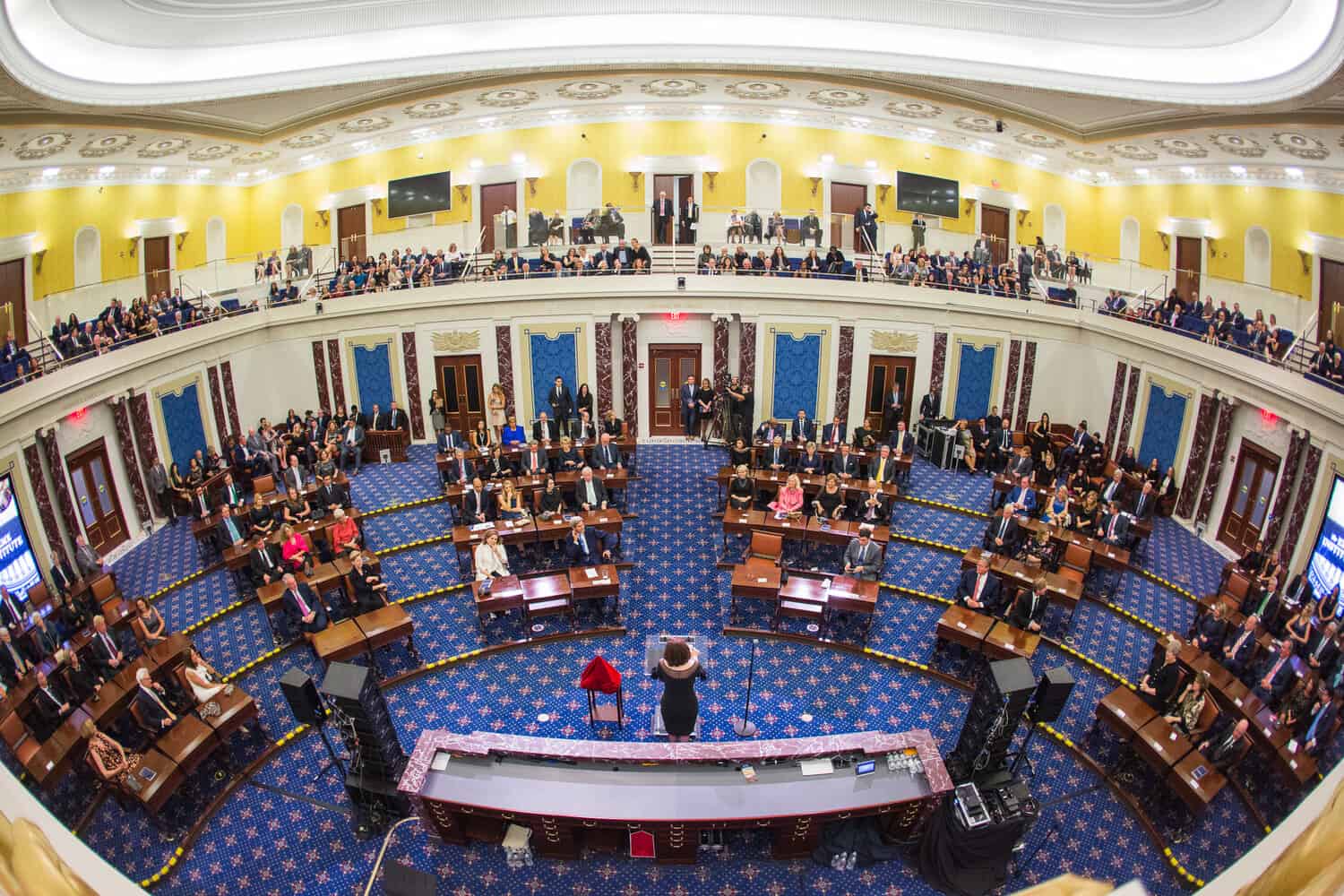Anita Alem is a student at Harvard Law School.
The Federal Trade Commission has cemented a Democratic majority among the commissioners, as the Senate confirmed Professor Alvaro Bedoya on Wednesday. The 51-50 vote, with a tiebreaker from Vice President Kamala Harris, signals a shift that will empower Chair Lina Khan to advance her policy agenda after months of 2-2 deadlock between commissioners. Although Bedoya was first nominated in September 2021, his confirmation process was repeatedly stalled. Republicans criticized Bedoya as unfit for a bipartisan position given his previous social media posts criticizing the Trump administration. The U.S. Chamber of Commerce, which in April repeatedly urged Congress to continue delaying Bedoya’s confirmation, has already released a statement warning that Bedoya’s confirmation will hamper economic growth.
Hearings continued regarding President Biden’s nominee to the Equal Employment Opportunity Commission, Kalpana Kotagal. Kotagal, who is an attorney at Cohen Milstein Sellers & Toll PLLC, responded to questions on Monday regarding her track record as a litigator and priorities for the EEOC. She expressed interest in addressing the gender pay gap and pregnancy discrimination if she were to receive the nomination. Kotagal is best known for designing the Hollywood “inclusion rider,” a contractual provision which mandates that film casts and crews must have a certain proportion of LGBT, women, and minorities.
Bloomberg Law reported that the number of investigators at the Department of Labor Wage and Hour Division has hit a 50-year low. Due in part to low morale, burnout, and frequent understaffing, 32 investigators have left over the past several months, despite the Division’s plan released in early 2022 to hire on 100 investigators. The total count of 725 investigators is down significantly from the approximately 1,000 investigators staffing the Division from 2010-2013. The attrition raises concerns regarding the agency’s ability to enforce critical employment laws, including the Fair Labor Standards Act (FLSA).
This week, several senators on the Committee on Health, Education, Labor & Pensions introduced the Wage Theft Prevention and Wage Recovery Act. The bill aims to deter wage theft and improve recovery under the FLSA, including by increasing damages for substantive violations and retaliation claims and enhancing transparency and recordkeeping requirements. The committee’s press release stated that employers are estimated to steal around $50 billion each year through wage theft, disproportionately affecting low-wage and tipped workers.
In other labor news, President Biden delivered remarks at the International Brotherhood of Electrical Workers’ 40th Annual Conference, where he shared the administration’s advances in infrastructure improvements and reaffirmed his commitment to being the most pro-union president in U.S. history. Biden also touched on healthcare policy and increasing taxes on billionaires.






Daily News & Commentary
Start your day with our roundup of the latest labor developments. See all
February 23
In today’s news and commentary, the Trump administration proposes a rule limiting employment authorization for asylum seekers and Matt Bruenig introduces a new LLM tool analyzing employer rules under Stericycle. Law360 reports that the Trump administration proposed a rule on Friday that would change the employment authorization process for asylum seekers. Under the proposed rule, […]
February 22
A petition for certiorari in Bivens v. Zep, New York nurses end their historic six-week-strike, and Professor Block argues for just cause protections in New York City.
February 20
An analysis of the Board's decisions since regaining a quorum; 5th Circuit dissent criticizes Wright Line, Thryv.
February 19
Union membership increases slightly; Washington farmworker bill fails to make it out of committee; and unions in Argentina are on strike protesting President Milei’s labor reform bill.
February 18
A ruling against forced labor in CO prisons; business coalition lacks standing to challenge captive audience ban; labor unions to participate in rent strike in MN
February 17
San Francisco teachers’ strike ends; EEOC releases new guidance on telework; NFL must litigate discrimination and retaliation claims.